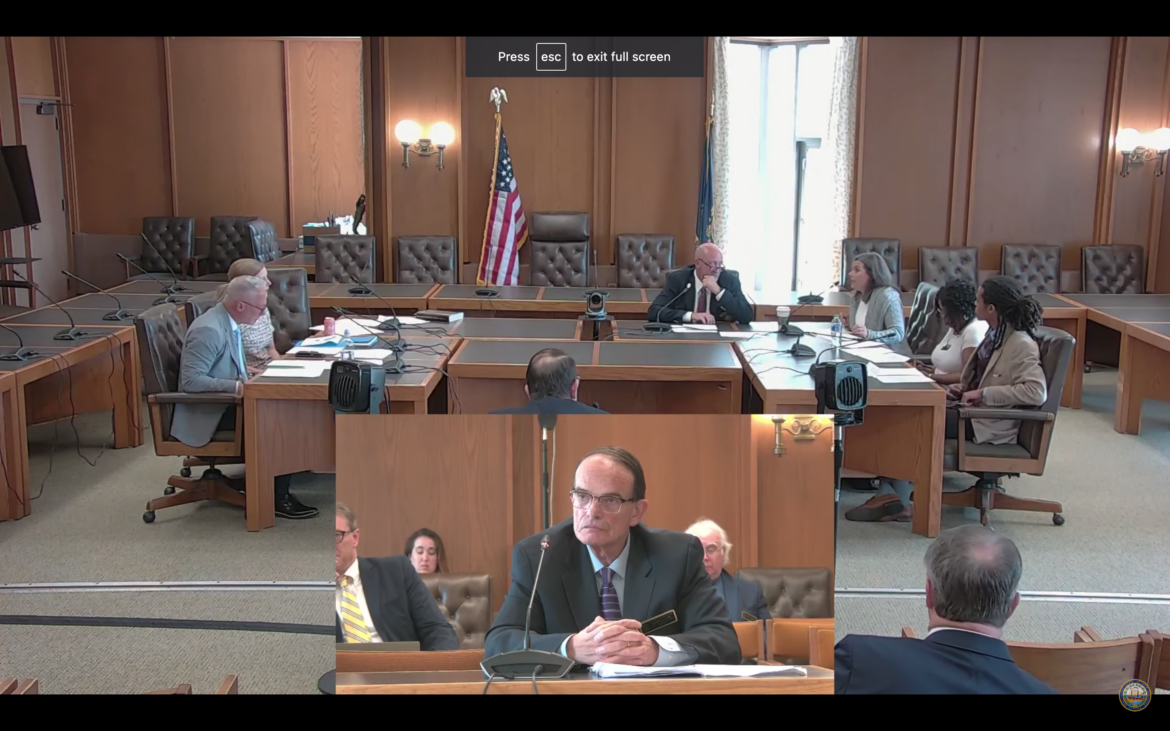By GARRY RAYNO, InDepthNH.org
CONCORD — Seeking not to upset the traditional extreme provocation defense, a committee of conference members crafted changes to a bill that would prohibit using the “gay panic” defense in a criminal assault or homicide case or other violent crimes.
Meeting Thursday, the last day for committee of conference agreements on different House and Senate versions of bills, the conferees for House Bill 315 agreed on an amendment crafted to prohibit a defense based on a person’s perceived gender, gender identity, gender expression, sex, or sexual orientation and that does not impact other provocation issues such as a woman’s right to self-defense against unwanted sexual actions.
The sponsor of the bill, Rep. Shaun Filiault, I-Keene, urged the committee not to lose sight of the bill’s intent.
“The gay panic defense is used, it is used every year, it is used thousands of times and it is used successfully,” Filiault said, “and that is why the American Bar Association wants it abolished.”
Some defendants claim they acted violently out of panic when a person of the same sex makes an unwanted romantic advance.
The House version of the bill includes the protection among other protected classes such as race, religion, creed, political beliefs or affiliations, but the Senate version includes a phrase concerning provocations that Rep. Robert Lynn, R-Windham, and former Chief Justice of the state Supreme Court, said could have unintended consequences on long-standing judicial procedures for extreme provocation.
For example, Lynn said, walking in on a spouse having sex with another person and then shoots the spouse and the third party.
He said a person who experiences extreme provocation has always been able to seek to have the homicide charge reduced to manslaughter.
And he said the Senate version could be construed to prevent the reduction in charges.
Sen. Daryl Abbas, R-Salem, said the Senate tried to narrow the bill so there would not be unintended consequences, and instead used a bill that passed the House last term as the model for their changes.
Sen. Rebecca Whitley, D-Hopkinton, said the intent was to try to balance constitutional issues to allow someone to mount a defense and still have this very important issue raised.
Rep. Jennifer Rhodes, R-Winchester, said she is concerned the changes do not touch a woman’s right to self-defense in the proposed amendment.
“Unwanted touching, is unwanted touching,” she said.
Whitley agreed and said the changes need to be tied to the gay panic section to avoid any problems.
After about a half hour of trying to craft the right language, the committee members said they all agree on the amendment that would accomplish what is intended.
The change would remove the other protected classes such as race, religion and creed in the House version.
Rep. Jonah Wheeler, D-Peterborough, said he would be introducing a bill next session to bring those areas left out of the agreement under the statute as well.
House and Senate conferees need to reach agreement on the outstanding bills by 5 p.m. Thursday or the bills die.
The House and Senate will meet June 29 to vote on the conference committee reports.
Garry Rayno may be reached at garry.rayno@yahoo.com.





